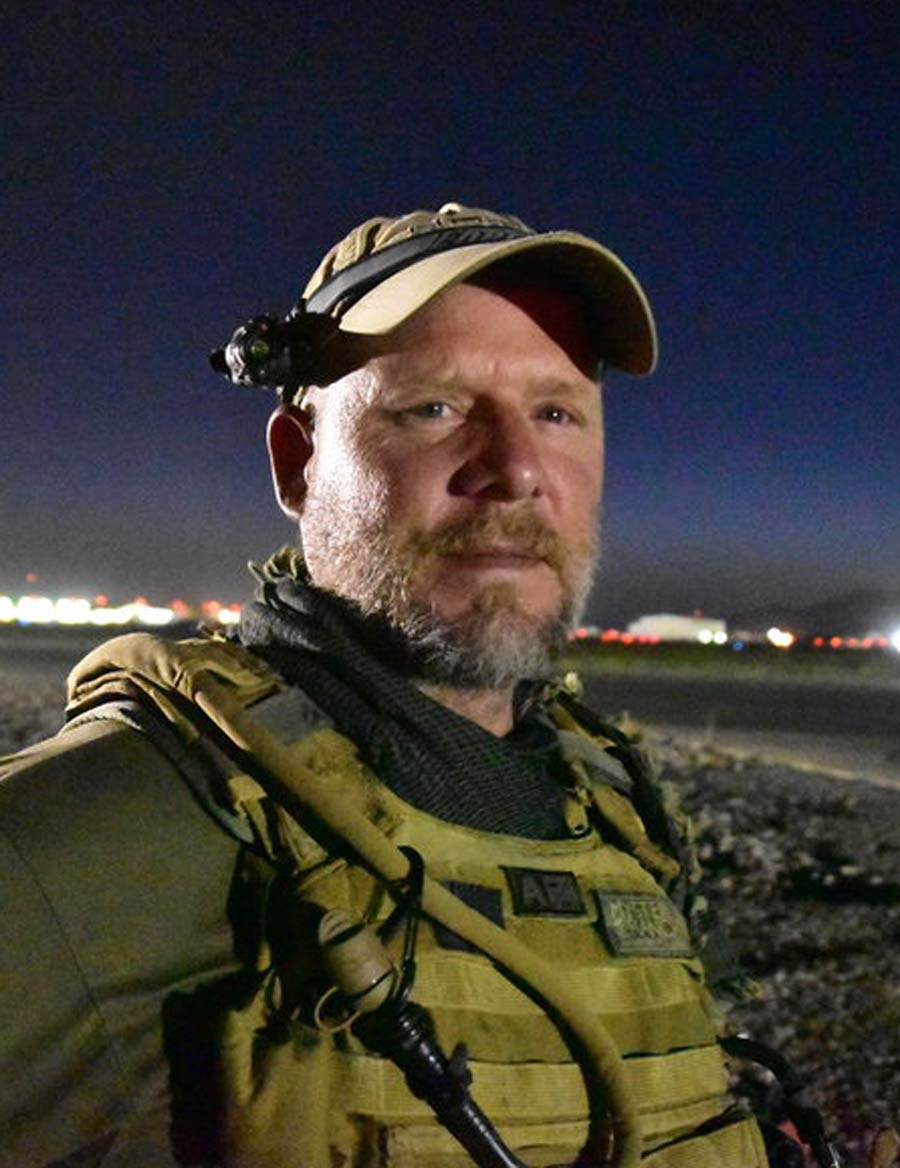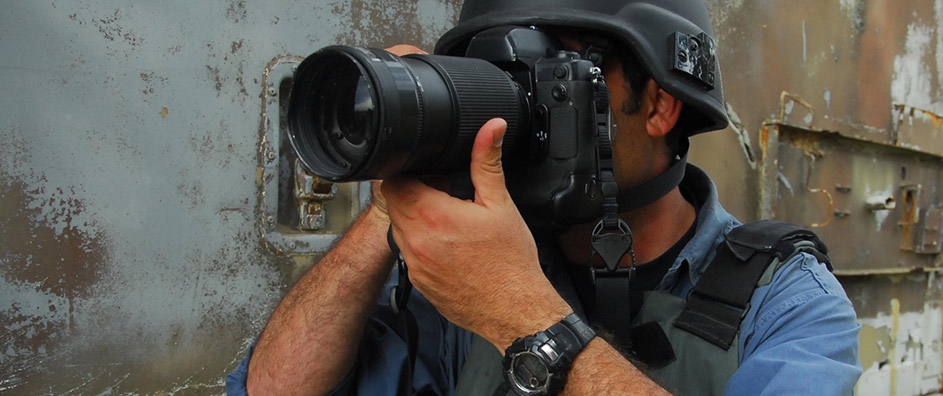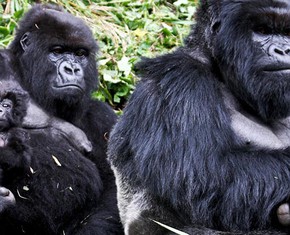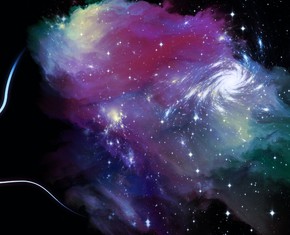The views expressed in our content reflect individual perspectives and do not represent the authoritative views of the Baha'i Faith.
Concern for and appreciation of the people who protect us—military, fire and police personnel—is common, and for good reason. Our safety is their number one priority.
They safeguard our property and bodies—but fear of harm can have a deleterious effect, so their actions also serve as protection for our psychological and emotional health.
Few of us have the same appreciation for journalists—but we should. Investigative reporters and photojournalists frequently put themselves in harm’s way in order to keep our minds free and informed—and to keep our societies free of lies and corruption, as well.
One reporter I know, David Leeson, worked as a newspaper photographer and photojournalist from 1977 to 2008. Even after being wounded while covering Panamanian protestors during the time leading to the ouster of Manuel Noriega, Leeson continued to cover events around the world as well as here at home. He earned prestigious awards, including the 2004 Pulitzer Prize for Breaking News Photography for his coverage of the war in Iraq, from which his wife and friends were thankful to have him return alive and unharmed.
Where I live in Arizona, just mention the name Don Bolles and people tend to close their eyes and shake their heads, remembering his assassination. Many of you may not know Bolles’ story; this is a brief summary from AZCentral.com:
On June 2, 1976, a bomb exploded beneath Arizona Republic reporter Don Bolles’ car. Eleven days later, he died. Today, there are still those who believe Bolles’ slaying is something of a mystery. Prosecutors say he was killed because of his stories attacking powerful Valley businessman Kemper Marley. Others think he died because of what he wrote about organized crime. Still others believe he was done in by a combination of the two. The truth is buried in the minds, or in the graves, of those who were involved.
In numerous countries, journalists often can’t write or film anything that doesn’t go along with the government’s official line of what people can or cannot be told. Criminal elements don’t want their crimes exposed, and neither do corrupt politicians.
The Baha’i teachings praise journalism and elevate its role in a free and well-developed society:
We may ascertain the progress or retrogression of a nation by its journalism… Journalists must write significant articles, articles that shall foster the public welfare. If they do so they will be the first agents for the development of the community. – Abdu’l-Baha, from the Pennsylvania Public Ledger, in Mina Yazdani’s essay for Abdu’l-Baha’s Journey West.
Around the world, reporters who agree with these words of Abdu’l-Baha, and who risk their lives in order to provide the actual facts to their readers, sometimes end up in prison or are executed. They die in wars. They risk everything to bring us the truth.
Even here in the United States many power brokers attempt to subvert the work of journalists. Those journalists brave dangers in order to discover uncomfortable secrets that the public deserves—and needs—to know.

David Gilkey
An attack in Afghanistan earlier this year took the lives of NPR news photographer and video editor David Gilkey and Afghani reporter Zabihullah Tamanna. They were among a small group of NPR journalists travelling with an Afghan army unit when their convoy came under fire.
U.S. Army General John W. Nicholson, commander of the U.S.-NATO Resolute Support mission in Afghanistan issued a statement about the slain journalists. It said, in part, “We have the utmost respect for their work as well as those others that endure the hardships that come with reporting from conflict zones.”
Gilkey, who had reported on the situation in Afghanistan since the September 11 attacks on the United States, and who began work for NPR in 2007, received the honor of being named 2011 Still Photographer of the Year by the White House Photographers Association.
NPR officials also spoke of the importance of the work done by these journalists and their peers. “He was devoted to helping the public see these wars and the people caught up in them,” said NPR’s senior vice president of news and editorial director, Michael Oreske. “He died pursuing that commitment… As a man and as a photojournalist, David brought out the humanity of all those around him. He let us see the world and each other through his eyes.”
Jarl Mohn, president and CEO of NPR, said: “Horrific incidents like this remind us of the important role journalists play in America’s civic life. They help us understand beyond the headlines and see the humanity in others.”
We owe Gilkey, Tamanna, and their fellow journalists our deepest respect and appreciation. Their endeavors show the toll war takes on the people, especially the innocents. They share their stories so the world will sit up and take notice.
The Baha’i writings tell us:
It is incumbent upon every soul in these few days of life to spend them in truthfulness and justice… – Baha’u’llah, Baha’i Scriptures, p. 85.
…we must speak the truth, otherwise we shall not act wisely… The greatest gifts of man are reason and eloquence of expression. – Abdu’l-Baha, Divine Philosophy, p. 103
Speaking the truth in journalism can also help to:
…quench, through the power of wisdom and the force of thy utterance, the fire of enmity and hatred which smouldereth in the hearts of the peoples of the world. – Baha’u’llah, Epistle to the Son of the Wolf, p. 12.
So I’d like to say thank you to all investigative journalists and photographers — you deserve our deepest appreciation. Your courage and integrity helps maintain our independence, and helps provide us with the facts we use to form own opinions and make our decisions.
















Comments
Sign in or create an account
Continue with Googleor